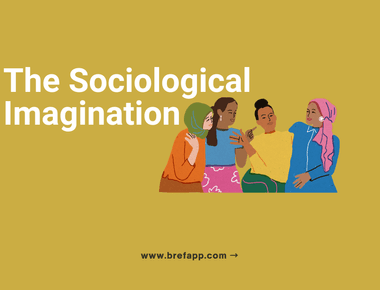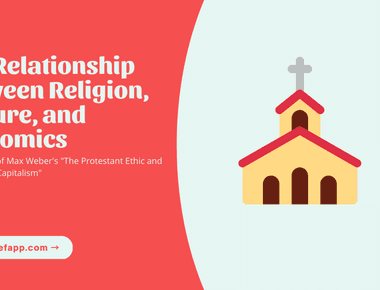
Bowling Alone: A Summary of Robert Putnam's Book

In his book “Bowling Alone,” Robert Putnam examines the decline of social capital in America over the past few decades. Social capital refers to the networks and relationships that people have with each other, which can lead to increased trust, cooperation, and mutual support. Putnam argues that the decline of social capital has had significant negative consequences for American society, including increased social isolation, political polarization, and a decline in civic engagement.
Putnam’s book has had a significant impact on discussions of social capital and community building in the United States and beyond. In this article, we will provide a summary of Putnam’s key arguments and insights. We will discuss the decline of social capital in America, the causes of this decline, the importance of community, and what can be done to rebuild social capital in our society. By the end of this article, readers will have a better understanding of the challenges facing our communities and the potential solutions for addressing them.
The Decline of Social Capital
Social capital refers to the networks, norms, and trust that facilitate cooperation and coordination among individuals and groups. In other words, it’s the glue that holds communities together and enables them to work towards common goals. Social capital is important because it helps to create a sense of belonging, mutual support, and shared responsibility, which can lead to better outcomes for individuals and society as a whole.
Unfortunately, social capital has been declining in America for several decades. Putnam points to several trends that illustrate this decline, including a decline in membership in civic organizations like the Rotary Club and the Lions Club, a decline in church attendance, and a decrease in informal socializing with neighbors and friends. These trends have resulted in decreased levels of trust and cooperation among Americans, which can lead to increased social isolation, loneliness, and even health problems.
For example, people who have weaker social networks are more likely to experience depression, anxiety, and other mental health issues. They are also less likely to have access to important resources, such as job opportunities or financial support during times of need. The decline in social capital also has political implications, as people who are less connected to their communities may be less likely to engage in political processes or to hold elected officials accountable.
The decline of social capital has significant consequences for individuals and society as a whole. It can lead to increased social isolation, a lack of trust and cooperation, and decreased civic engagement.
Causes of the Decline in Social Capital
The rise of technology: Putnam argues that technology, particularly television and the internet, has led to a decline in face-to-face interactions and a weakening of community ties. He cites evidence from surveys that show a decline in the amount of time people spend socializing with friends and neighbors. For example, a survey conducted by the General Social Survey found that the percentage of people who reported spending social evenings with neighbors dropped from 55% in 1974 to 35% in 2000.
Suburbanization: Putnam argues that suburbanization has led to the fragmentation of communities and the loss of traditional gathering places such as town squares and Main Streets. This has made it more difficult for people to form and maintain social connections. He cites evidence from surveys that show a decline in the number of people who know their neighbors. For example, a survey conducted by the Pew Research Center found that in 2010, only 19% of Americans reported knowing all or most of their neighbors, compared to 30% in 1974.
Changing nature of work: Putnam argues that the changing nature of work has led to more time spent at work and less time available for socializing and community activities. This has made it more difficult for people to form and maintain social connections. He cites evidence from surveys that show a decline in the amount of time people spend on leisure activities. For example, a survey conducted by the Bureau of Labor Statistics found that the average American spent 5.2 hours per day on leisure activities in 2019, compared to 5.7 hours per day in 2003.
The Importance of Community
Putnam argues that community is essential for fostering social capital. He provides examples of successful community-building initiatives, such as community gardens, neighborhood watch programs, and block parties. These initiatives bring people together and provide opportunities for them to get to know each other and build trust.
Putnam also emphasizes the importance of civic organizations such as churches, labor unions, and political parties, which provide opportunities for people to come together and work towards common goals. He argues that these organizations are important not only for their instrumental value, but also for the sense of identity and belonging that they provide.
Putnam argues that rebuilding social capital requires a concerted effort to strengthen communities and foster social connections. This can be achieved through a range of initiatives, from small-scale community-building projects to larger-scale policy interventions that support the formation and maintenance of social networks.
FinalThoughts
Robert Putnam’s book “Bowling Alone” highlights the decline in social capital and its consequences, including increased loneliness and social isolation. Factors that have contributed to the decline in social capital include the rise of technology, suburbanization, and the changing nature of work. However, Putnam argues that community is essential for fostering social capital and provides examples of successful community-building initiatives, such as community gardens, neighborhood watch programs, and block parties.
It is important to address the decline in social capital, as it has significant social, economic, and political implications. Social capital is crucial for building trust, cooperation, and resilience in communities, and can contribute to better health, education, and economic outcomes.
Therefore, we must all take action to rebuild social capital by getting involved in our communities and fostering social connections. This could involve volunteering, joining community organizations, attending neighborhood events, or simply reaching out to our neighbors and building relationships. By working together to build strong and connected communities, we can help to rebuild social capital and create a better future for ourselves and future generations.
-—
Buy on amazon
Tags
Related Posts





Quick Links
Categories

